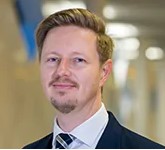People often ask me why sustainable development is such an important topic for me. The answer is simple: human development for all, within the ecological capacity of our planet, is the most important challenge of our time.
Climate change is having a huge impact on the lives – and livelihoods – of people across the world. And in the area of healthcare, the World Health Organization (WHO) and the World Bank report that up to 3.5 billion people – half the world’s population – lack access to the health services they need.
On September 14, Philips reinforced its commitments as a purpose-driven company with the announcement of an enhanced and fully integrated approach to doing business responsibly and sustainably. I am excited and inspired to work for a company that is committed to actively make a difference and help drive global change. Now, and for the generations to come.
Change a constant
Human society is the ultimate example of a complex, self-organizing system with emergent and often changing behavior. Many approaches have been taken to understand and model how to best organize ourselves; balancing the interests of the many, including the interests of future generations and other species. I dare say our collective understanding of social dynamics is still very rudimentary, but it seems clear to me that an understanding of economics is an important part of this.
With that in mind, I went on to learn more about economics and industry as a force for innovation and change, and eventually I joined Philips, with its clear focus on improving people’s health and well-being.
I am convinced that by understanding what’s going on around us, we can take the right action to bring about change. And that’s exactly what is happening at Philips today. We are changing the way we strategize, innovate, purchase, and produce – all to make tomorrow’s world healthier and more sustainable.
New environmental and social targets for 2025
We remain focused on material environmental topics driving climate action, such as the sustainable use of energy. We will do this through expanded renewable energy sourcing and increased energy efficiency, with a specific focus on the use-phase of our products. We also remain focused on the sustainable use of materials, driving the transition to a circular economy.
On the social side – as part of our target to improve the lives of 2.5 billion people a year by 2030 – we have developed new perspectives on how to expand access to care for underserved communities. For instance, through the further digitalization of care.
All these topics require urgent action. We continue to prioritize and embed sustainability in our innovation processes and apply EcoDesign requirements in product design, focusing on energy efficiency, packaging, substances, weight & materials, and circularity.
They also require us to team up with our customers and partners to amplify our ecological and social impact far beyond our own operations, and to build strong coalitions to drive global change. This includes working with our suppliers to reduce the environmental footprint of our entire supply chain in line with a 1.5 oC global warming scenario. Unavoidable carbon emissions in our own operations will be offset via investment in health-benefitting environmental projects, such as safe drinking water, clean energy, biodiversity, and forestation programs.
Key learning
For me, the biggest learning, and challenge, has been to rally everyone – our customers, stakeholders, employees and partners – behind the idea that actively contributing to sustainable development is not only good for business. It is the only way to do business. Think about it: by 2030 we need to significantly reduce our global carbon emissions and achieve universal health coverage. That means that by 2025, we need to make major investments to deliver on this. Which in turn means that in the next two years or so we must all take some major decisions to make it happen, including rethinking our economic models to become more circular and inclusive.
A hopeful perspective
From the many conversations I have with colleagues, customers and stakeholders, I feel a huge sense of urgency, energy and commitment. And a shared understanding that we really need to move at a much faster speed.
If COVID-19 has taught us anything, it is how interconnected the social, economic and environmental challenges we face are. Crucially, though, it has also demonstrated that a large-scale, comprehensive response is possible, provided we all commit to it. Innovating our way out of a crisis, guided by purpose.
Robert Metzke, Global Head of Sustainability Philips
This article first appeared on the website of Philips



